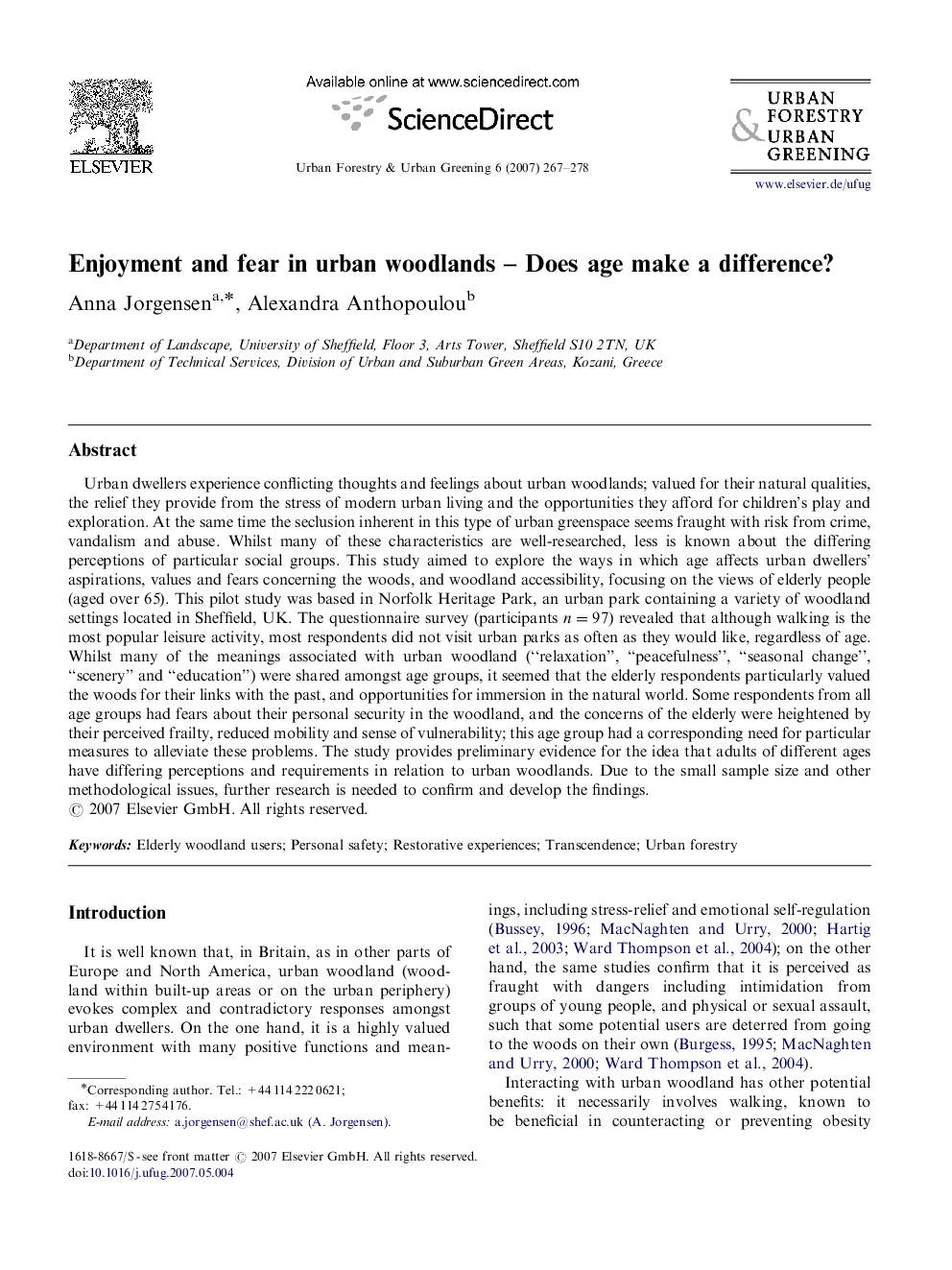| Article ID | Journal | Published Year | Pages | File Type |
|---|---|---|---|---|
| 94205 | Urban Forestry & Urban Greening | 2007 | 12 Pages |
Urban dwellers experience conflicting thoughts and feelings about urban woodlands; valued for their natural qualities, the relief they provide from the stress of modern urban living and the opportunities they afford for children's play and exploration. At the same time the seclusion inherent in this type of urban greenspace seems fraught with risk from crime, vandalism and abuse. Whilst many of these characteristics are well-researched, less is known about the differing perceptions of particular social groups. This study aimed to explore the ways in which age affects urban dwellers’ aspirations, values and fears concerning the woods, and woodland accessibility, focusing on the views of elderly people (aged over 65). This pilot study was based in Norfolk Heritage Park, an urban park containing a variety of woodland settings located in Sheffield, UK. The questionnaire survey (participants n=97) revealed that although walking is the most popular leisure activity, most respondents did not visit urban parks as often as they would like, regardless of age. Whilst many of the meanings associated with urban woodland (“relaxation”, “peacefulness”, “seasonal change”, “scenery” and “education”) were shared amongst age groups, it seemed that the elderly respondents particularly valued the woods for their links with the past, and opportunities for immersion in the natural world. Some respondents from all age groups had fears about their personal security in the woodland, and the concerns of the elderly were heightened by their perceived frailty, reduced mobility and sense of vulnerability; this age group had a corresponding need for particular measures to alleviate these problems. The study provides preliminary evidence for the idea that adults of different ages have differing perceptions and requirements in relation to urban woodlands. Due to the small sample size and other methodological issues, further research is needed to confirm and develop the findings.
